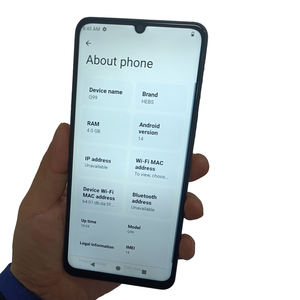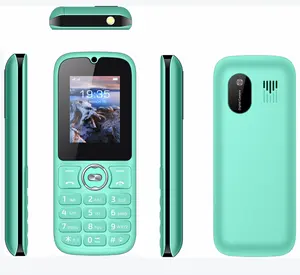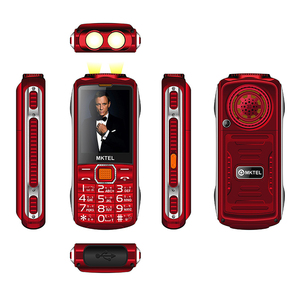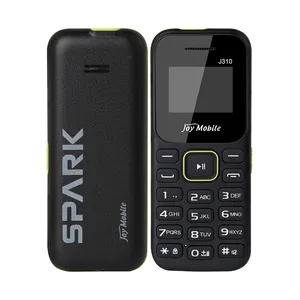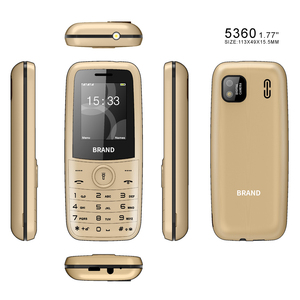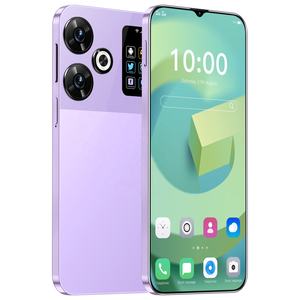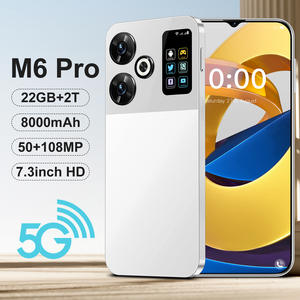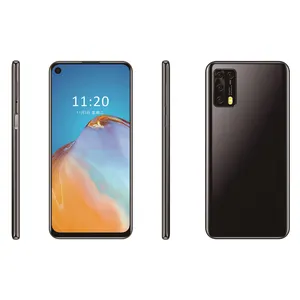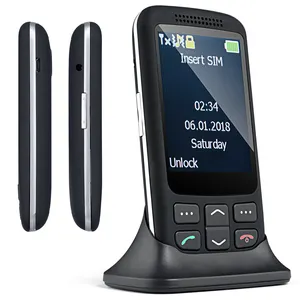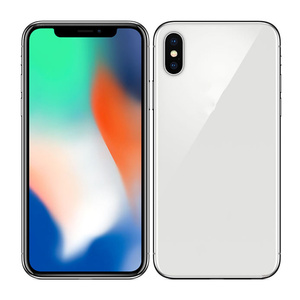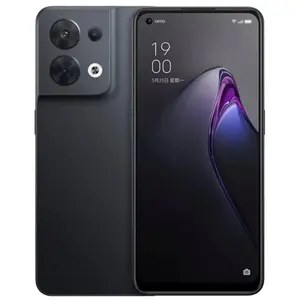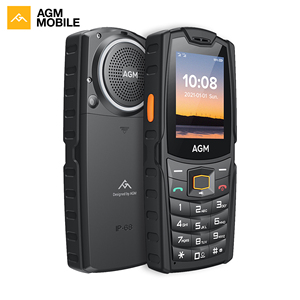Format Factory For Mobile






































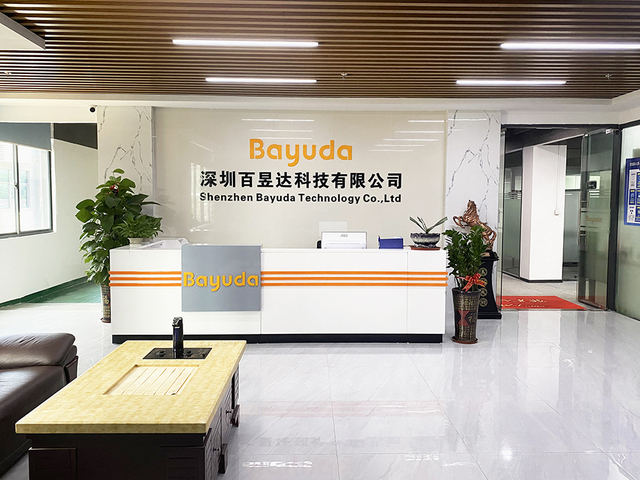




 CN
CN






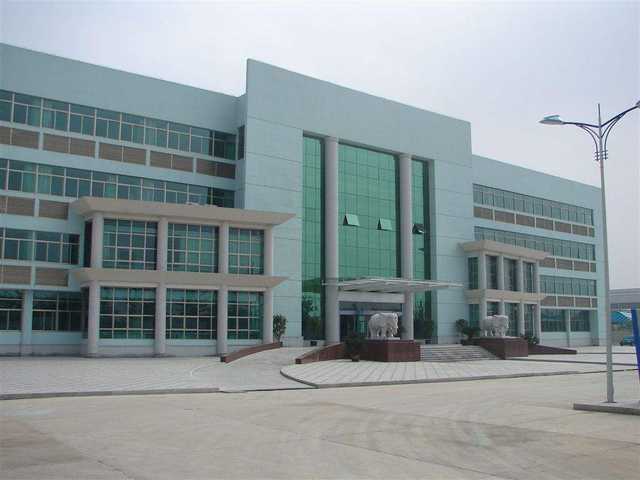










About format factory for mobile
Where to Find Mobile Phone Manufacturers with Own Production Lines?
China remains the global epicenter for mobile phone manufacturing, with key industrial hubs concentrated in Guangdong and Shenzhen. These regions host vertically integrated factories equipped with in-house production lines, enabling end-to-end control from design to final assembly. Shenzhen, in particular, is renowned for its dense ecosystem of component suppliers, R&D centers, and electronics OEMs, allowing rapid prototyping and scalable production. Proximity to ports like Yantian and Shekou facilitates efficient export logistics, reducing shipping lead times by up to 20% compared to inland facilities.
Manufacturers in this cluster typically operate automated SMT (Surface Mount Technology) lines and employ precision testing equipment for RF, battery performance, and durability. Many offer dual capabilities in both new and refurbished device production, supporting private label, OEM, and ODM models. Buyers benefit from flexible MOQs—some as low as one unit—and fast turnaround cycles, with standard orders fulfilled within 15–30 days depending on customization scope. Cost advantages stem from localized supply chains, where access to displays, PCBs, and batteries reduces material procurement costs by 18–25% versus offshore alternatives.
How to Choose Mobile Phone Suppliers with In-House Production?
Selecting a reliable supplier requires rigorous evaluation across technical, operational, and transactional dimensions:
Production & Technical Capability
Confirm ownership of dedicated production lines through facility videos or third-party audit reports. Prioritize suppliers with in-house capabilities in PCB assembly, firmware customization, and environmental stress testing. For custom ROM or ruggedized devices, verify engineering team size and software development experience. Factories should maintain cleanroom environments and ISO 9001-compliant workflows to ensure consistent quality.
Quality Assurance Protocols
Evaluate adherence to international standards such as CE, RoHS, and FCC. Request test reports for drop resistance, IP ratings (for waterproof models), and battery safety (UN38.3). Reputable manufacturers conduct 100% functional testing on finished units and maintain traceability logs per batch. Cross-reference claimed certifications with issuing bodies to prevent misrepresentation.
Order Flexibility & Commercial Terms
Assess MOQ structures: some suppliers offer sample-friendly terms (1–2 pieces), while bulk orders often start at 3,000–5,000 units. Unit pricing varies significantly based on configuration—from $4.30 for basic feature phones to over $300 for high-end refurbished models. Lead times average 15–25 days post-design approval. Favor suppliers with transparent pricing models and no hidden tooling fees for minor customizations.
What Are the Leading Mobile Phone Suppliers with Own Production Lines?
| Company Name | Location | Main Products | MOQ Range | Price Range (USD) | On-Time Delivery | Avg. Response | Online Revenue | Reorder Rate |
|---|---|---|---|---|---|---|---|---|
| Guangzhou Yangyi Electronics Co., Ltd. | Guangzhou, CN | Used Mobile Phones, Tablet PC, LCDs, Chargers | 2 pcs | $30–422 | 100% | ≤11h | US $4,000+ | - |
| Shenzhen Songming Communication Technology Co., Ltd. | Shenzhen, CN | 5G Smartphone, Rugged Phone, Smart Watches | 3,000–5,000 pcs | $45–150 | 96% | ≤3h | US $250,000+ | 21% |
| Guangzhou Fengwangfa Technology Co., Ltd. | Guangzhou, CN | 5G Smartphone, Gaming Phones, Smart Watches | 1–2 pcs | $55–72.50 | 98% | ≤1h | US $10,000+ | <15% |
| Shenzhen Juxin Yunchuang Electronics Co., Ltd. | Shenzhen, CN | 5G Smartphone, Tablet PC | 1 pc | $39.60 | 98% | ≤1h | US $150,000+ | <15% |
| Shenzhen Topworld Technology Co., Ltd. | Shenzhen, CN | Feature Phone, Rugged Phone, 5G Smartphone | 50–5,000 pcs | $4.30–60 | 97% | ≤4h | US $260,000+ | 26% |
Performance Analysis
Guangzhou and Shenzhen-based suppliers demonstrate strong responsiveness, with three out of five achieving sub-4-hour average reply times. Shenzhen Songming and Shenzhen Topworld report the highest online revenues (over US $250,000), indicating robust export activity and buyer trust. While several suppliers offer ultra-low MOQs (down to one piece), those with higher minimums (3,000+ units) generally provide tighter price controls and better scalability for volume buyers. Notably, Guangzhou Yangyi achieves perfect on-time delivery despite lower revenue volume, suggesting niche specialization and manageable order loads. For customized firmware or rugged device needs, prioritize suppliers with documented R&D investment and firmware-level customization options.
FAQs
How to verify a mobile phone manufacturer’s production line ownership?
Request factory audit reports, video walkthroughs of SMT and testing stations, and proof of machinery ownership. Cross-check employee count and facility size with production capacity claims. Third-party inspection services can validate infrastructure claims before order placement.
What is the typical lead time for custom mobile phone orders?
Standard orders take 15–25 days after deposit and design confirmation. Custom ROM integration or hardware modifications may extend timelines to 35 days. Sample units are typically delivered within 7–14 days for pre-production evaluation.
Do suppliers support private labeling and packaging customization?
Yes, most suppliers listed offer full branding services including logo printing, custom boot screens, and tailored retail packaging. Minimum branding MOQs vary—some require 1,000 units, while others accommodate smaller batches starting at 500 pieces.
Are there additional costs for compliance certification?
Certification costs (CE, FCC, RoHS) are typically borne by the buyer unless included in the unit price. Suppliers may charge separately for documentation preparation and lab testing coordination, especially for market-specific requirements like TELEC (Japan) or ANATEL (Brazil).
How to manage quality risks when sourcing from new suppliers?
Start with a small trial order and conduct independent third-party inspections (e.g., SGS, TÜV). Test samples for signal performance, battery life, and software stability under real-world conditions. Require AQL 2.5/4.0 inspection protocols during mass production and retain signed sample approvals before shipment.










